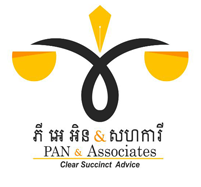Recovering unpaid loans can be a complex and time-consuming process. In Cambodia, there are specific legal procedures to expedite loan recovery, ensuring that lenders can reclaim their funds efficiently. Here’s a streamlined approach to recovering loans in Cambodia:
- Initial Assessment and Documentation
The first step in the loan recovery process involves a thorough assessment and documentation of the loan:
- Review Loan Agreement: Examine the loan agreement to ensure it complies with Cambodian law and clearly outlines the terms and conditions, including repayment schedules, interest rates, and penalties for non-payment.
- Gather Evidence: Collect all relevant documents, such as signed loan agreements, communication records, payment receipts, and any notices of default sent to the borrower.
- Negotiation and Settlement
Before pursuing legal action, attempt to resolve the matter amicably through negotiation:
- Contact the Borrower: Reach out to the borrower to discuss the overdue payment and explore potential settlement options.
- Settlement Agreement: If possible, draft a settlement agreement outlining new repayment terms that are mutually agreeable. Ensure that this agreement is documented in writing and signed by both parties.
- Demand Letter
If negotiations fail, proceed with sending a formal demand letter:
- Drafting the Demand Letter: The demand letter should detail the outstanding amount, reference the loan agreement, and specify a deadline for repayment. It should also inform the borrower of the potential legal consequences of non-payment.
- Delivery of the Demand Letter: Send the demand letter via registered mail or another verifiable method to ensure receipt.
- Legal Action
If the borrower does not respond to the demand letter, initiate legal action:
- File a Complaint: Prepare and file a complaint with the competent court in Cambodia. The complaint should include all relevant documents and evidence supporting your claim.
- Court Proceedings: Engage in court proceedings where the court will evaluate the evidence and make a judgment. In many cases, the court may issue a summary judgment if the borrower fails to appear or provide a valid defense.
- Demand Procedure: Besides a normal civil suit/action, the creditor can also opt for the Demand Procedure, which is an expedited procedure available when the claim amount or evidence is solid. This can significantly shorten the time required to obtain a judgment.
- Enforcement of Judgment
Upon obtaining a favorable judgment, enforce the court’s decision to recover the loan:
- Execution of Judgment: File for the execution of the court judgment, which may involve seizing the borrower’s assets, garnishing wages, or other legal measures to ensure repayment.
- Asset Investigation: Conduct an investigation to identify the borrower’s assets that can be seized to satisfy the debt.
- Alternative Dispute Resolution
Consider alternative dispute resolution methods if traditional litigation is not desirable:
- Mediation: Engage a neutral third-party mediator to facilitate discussions between the lender and borrower, aiming for a mutually acceptable resolution.
- Arbitration: If the loan agreement includes an arbitration clause, pursue arbitration to resolve the dispute more swiftly than traditional court proceedings.
- Seeking Legal Assistance
Navigating the loan recovery process requires expertise in Cambodian law and judicial procedures. Our law firm specializes in loan recovery and can provide the necessary legal assistance to expedite the process. From drafting demand letters to representing clients in court, we are committed to ensuring that lenders recover their funds efficiently and effectively.
For further assistance or to schedule a consultation, please contact us at info@pan-asscoiates.com

